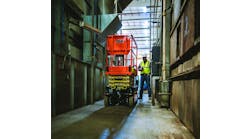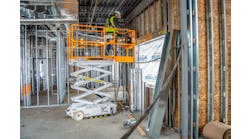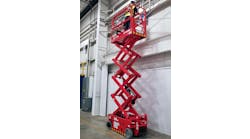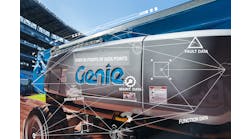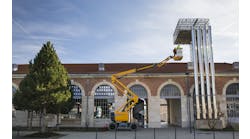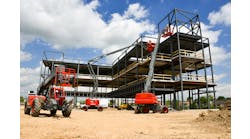In preparation for RER’s June issue, our staff interviewed a number of manufacturers of lawn-and-garden equipment, and will present a number of these interviews in RER Reports. In this interview, RER’s Michael Roth interviews Will Coates, president of Billy Goat Industries, Lee Summit, Mo., on the company’s product lines, how to make machines more productive for the contractor and more intuitive for the homeowner, and the possible future use of alternative energy sources.
RER:What are the main areas of technological advancement in your product line and in the industry in general?
The technological advancements in our product line include the use of advanced composites throughout our vacuum and blower lineup that improve productivity and ergonomics through improved performance, reduced weight, and better fuel economy.
We are also encouraged by the early acceptance of advanced drive systems like the hydrostatic transmission we’ve employed in our new self-propelled overseeder or the composite mechanical drive we use in our blowers. In fact, the latter has allowed Billy Goat to eliminate the “push” or fatigue factor from push blowers and the former has dramatically improved the customer experience when renting an overseeder, which drives re-rentals.
Using technology to improve end user experience, productivity and ergonomics (noise, vibration, fatigue, emissions) remain important considerations for both Billy Goat and the entire Outdoor Power Equipment segment.
What are some of the trends you see now and in the foreseeable future in your type of equipment?
There is a macro trend and a micro trend. The macro trend is the astute rental dealer who understands that his clients are much more geared to productivity — we’re talking about contractors in this case — so they are investing in equipment that gives their contractors a much better return. The contractors can be a lot more productive and earn more money on the job as long as they have the tools with the uptime that is so critical. Billy Goat’s perspective is that if we can make a machine more productive for the contractor, but at the same time make it intuitive for the homeowner and not a daunting piece of equipment, we’ve doubled the opportunity for rental — whether it is a homeowner looking to rent for a day or a weekend or whether it is a contractor looking to rent for a full week or month.
Because our market is so highly seasonal, there are two other things that we see on a micro level. Contractors have downsized. They are trying to get more productivity out of the equipment they have and yet at the same time they want to offer robust services. Instead of tying up their capital or a line of credit by buying equipment and having much of it sit for a good portion of the year, they are better off renting it. The second micro issue concerns homeowners who may have previously outsourced overseeding, aerating, power raking to third parties, have now taken back these lawn care chores. As a result, they start doing the work or employing their teenagers, and need information on how to operate equipment and become more self-sufficient managing their own property. Billy Goat provides rental stores with both seasonal videos and “how to” guides to support this trend.
Is fuel efficiency a big concern in today’s market and if so what are you doing to address that concern?
Fuel efficiency is certainly a concern so Billy Goat specs engines that employ the latest in combustion technology. We work with the engine manufacturer’s application engineers to ensure that engines have sufficient reserve and operate at the lowest RPMs necessary for the application. As discussed above, where appropriate, we spec many parts out of composites instead of steel to improve performance and reduce fuel consumption as much as possible. Our engineering staff continues to evaluate alternate power sources such as battery and electric wherever it may make sense.
What EPA, CARB regulations or other environmental concerns are affecting your R&D, the manufacturing and marketing of your equipment?
Previously, some of our engine manufacturers were not CARB-approved for sale in California – that inhibited our sales in that state. Today, all but one model in our range are available in at least one configuration for sale in California.
What are some of the trends you see in the rental industry in terms of lawn & garden equipment and how do those trends affect your business?
Diversified rental businesses are thriving; those with lawn and garden, general tool, construction and party appear to be outperforming specialty rental companies – especially over the last two years. Tactics like providing weekend hours, offering customer tips, and merchandising through professional displays are serving these dealers and their customers best.
Any particular advice to rental companies in terms of how to be successful renting your kinds of equipment?
A strong local advertising program that highlights seasonal products right before the need seems to work well. In high traffic areas, signage that creates awareness can be really effective. Also, how the dealer maintains its fleet speaks volumes: avoid the temptation to age your assets beyond their useful lives. Offer hours that are convenient to your customers, not your staff. And promote the brands you carry with the tools they offer — like in-store videos, counter top customer tips, and merchandising displays — to support your products and services. Finally, dealers can learn invaluable information by asking their customers about their rental experience either verbally or through customer surveys.
